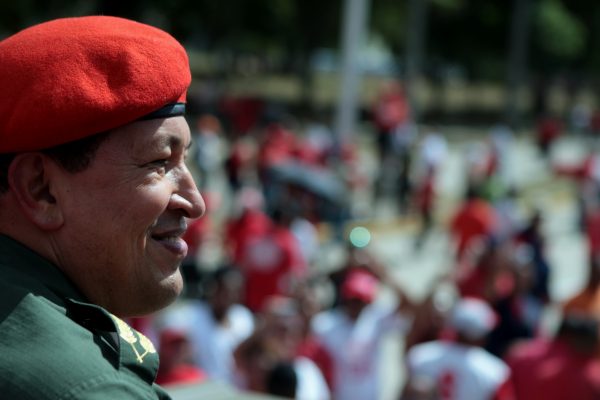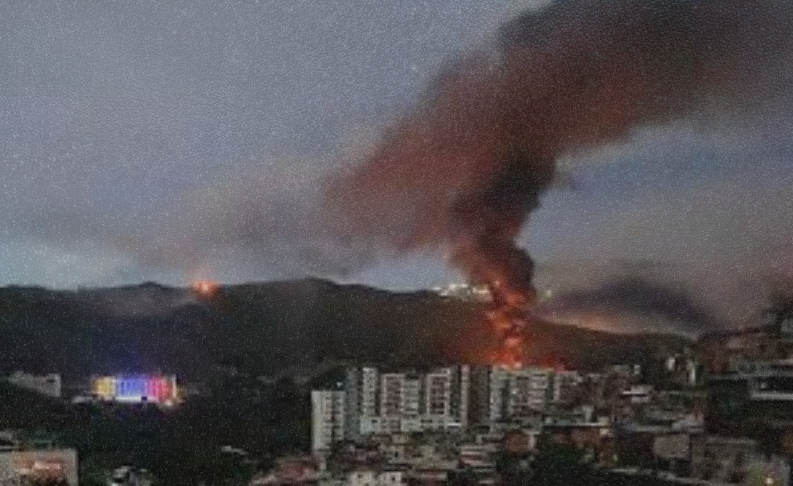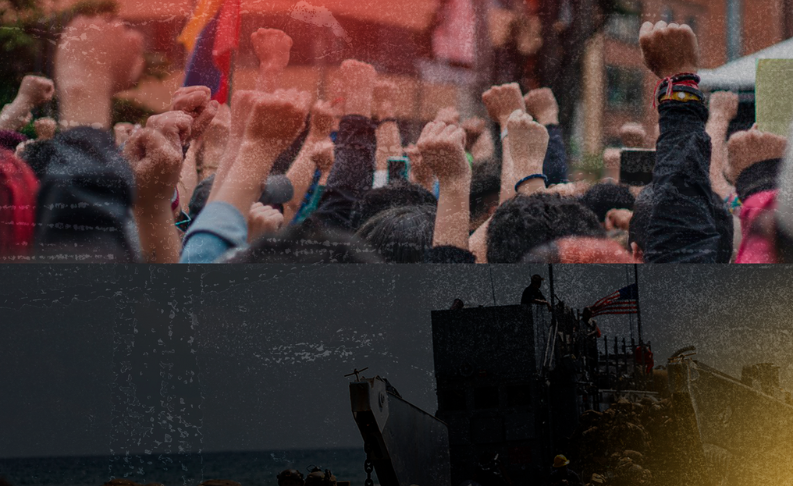
In the midst of the neoliberal night, when the arrogance of the powerful decreed the end of history and the complicity of the “realists” urged resignation as the only possible path, a civic-military rebellion broke out in Venezuela with the aim of putting an end to the despotism of the governments in power. In the early morning of February 4, 1992, a group of young officers, belonging to the secret group Movimiento Bolivariano MBR-200, burst into public life through the so-called “Operation Zamora”. This rebellion of young officers echoed the widespread social unrest and weariness with a political regime and a government whose only response to inequality and hunger was repression, like what was seen in response to the 1989 Caracazo. The 4F uprising took place on the return to the country of Carlos Andrés Pérez, the then president of Venezuela, after participating in the World Economic Forum in Davos, where the major economic groups of the world met to discuss their agendas.
The 4F rebellion of 1992 failed in its immediate objectives, being contained by the government of the time. However, social sympathy for the event spread among the people. That day, the country heard for the first time the voice of a young Comandante named Hugo Chávez: “For now, the objectives we set were not achieved in the capital city”. “That is to say, here in Caracas we did not manage to control power. It is time to reflect and new situations will come, and the country must definitely head towards a better destiny. I thank you for your loyalty, I thank you for your courage, your generosity and I, before the country and before you, assume the responsibility of this Bolivarian military movement”.
That “for now” became a programmatic promise and a horizon to fight for. February 4, 1992 would mark the beginning of a cycle of popular rebellions that, throughout the continent, was building an alternative to neoliberalism. It thus gave a historical lesson that the ruling classes try, time and again, to erase: there is no fatalism except in resignation.
Ten years after that 4F, the big business groups, seeing how their privileges were being increasingly challenged, went on the offensive. Reaction, with the ever-present help of Washington, tried to overthrow the government by means of a coup d’état in 2002, which was prevented by the mobilized people. Then, they tried to encircle the government by means of oil sabotage, which was also stopped. Each one of these attacks, far from slowing down or conditioning Comandante Chávez, were answered with the firmness and conviction to advance in the path of the popular struggle. It was this determination not to compromise, not to retreat, which outlined the contours of the anti-imperialist, anti-capitalist, and socialist character of the Bolivarian Revolution.
In the firmness of not confusing his place and never abandoning the working people, Comandante Chávez, in the face of each onslaught, assumed that the enemy was not only neoliberalism, but that genocide that does not like to be called by its name: capitalism.
Thirty years after that rebellion of 4F, dramatic and urgent moments are once again looming over history. The capitalist system has dragged humanity into the abyss of deep and unprecedented crises. Never in history has inequality been as deep and violent as it is today. Never has human life been put at risk as it is today; the product of a social system driven by the blind and automatic interest of private profit, which in its deployment destroys the very possibility of the sustainability of life.
The Bolivarian Revolution baptized that epic of February 4 as “Day of National Dignity”. The dignity of the humble, that marked by the sacred right to rebel against the outrages of the powerful. The rightness of rising up against oppression and injustice. Thirty years later, it is essential to return, again and again, to those moments of dignity that show us the way. This is Memory: an act of revolt against all resignation to the misery of the possible.


